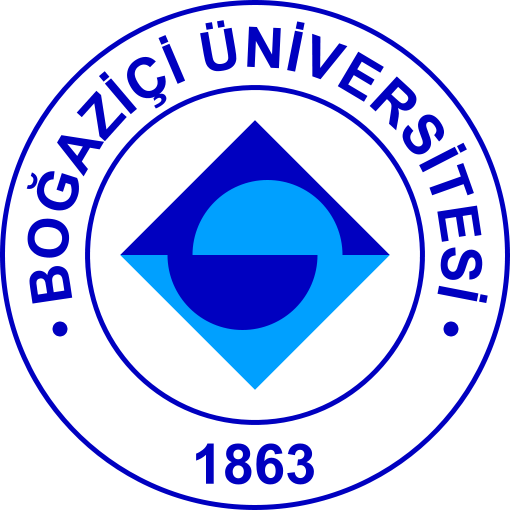Menu
Travel Info:
Distinguished Faculty
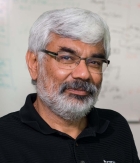 Prof. Shankar Subramaniam |
Prof. Shankar Subramaniam is a Professor of Bioengineering, Chemistry and Biochemistry, Cellular and Molecular Medicine and Nano Engineering. He is currently the Chair of the Bioengineering Department at the University of California at San Diego. He holds the inaugural Joan and Irwin Jacobs Endowed Chair in Bioengineering and Systems Biology. He was the Founding Director of the Bioinformatics Graduate Program at the University of California at San Diego. He also has adjunct Professorships at the Salk Institute for Biological Studies and the San Diego Supercomputer Center. He is also a Guest Professor at the Center for Molecular Biology and Neuroscience at the University of Oslo in Norway and Professor at the Center for Cardiovascular Bioinformatics and Modeling at Johns Hopkins University. Prior to moving to UC San Diego, Dr. Subramaniam was a Professor of Biophysics, Biochemistry, Molecular and Integrative Physiology, Chemical Engineering and Electrical and Computer Engineering at the University of Illinois at Urbana-Champaign (UIUC). He was the Director of the Bioinformatics and Computational Biology Program at the National Center for Supercomputing Applications and the Co-Director of the W.M. Keck Center for Comparative and Functional Genomics at UIUC. He is a fellow of the American Institute for Medical and Biological Engineering (AIMBE) and is a recipient of Smithsonian Foundation and Association of Laboratory Automation Awards and his research work is described below. In 2002 he received the Genome Technology All Star Award. In 2008 he was awarded the Faculty Excellence in Research Award at the University of California at San Diego. His research spans several areas of bioinformatics and systems biology. |
Faculty
 Prof.David Fenstermacher |
Prof. David Fenstermacher is currently Executive Director of Research Informatics at the H. Lee Moffitt Cancer Center and Research Institute. He also directed informatics shared resource facilities for more than nine years at the University of North Carolina at Chapel Hill and the Abramson Cancer Center at the University of Pennsylvania. During his tenure in biomedical informatics, Dr. Fenstermacher has designed and directed the implementation of several bioinformatics distributed computing systems to support basic and clinical research, including multiple institution research projects. He has also designed data management systems for more specialized projects including integrating clinical (patient and lab test data), genomics (SNP and microarray) and proteomics (2D-gel electrophoresis and mass spectrometry data) data to support multiple projects focused on a single goal, modifier gene discovery. Data management systems designed by Dr. Fenstermacher have included: collection and storage of subject data; tracking and reporting of milestones for multiple studies, development of web-based forms for input, storage and retrieval of all data collected from or about subjects, customized data representations and data sharing using Grid technologies. |
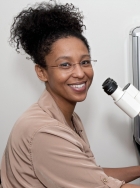 Prof. Anjelica Gonzalez |
Prof. Anjelica Gonzalez’ appointment as Assistant Professor in the Department of Biomedical Engineering at Yale University has provided a supportive and convenient platform for her research, focused on the development of biomaterials for use as investigational tools and therapeutic devices. Anjelica’s group focuses on the investigation of extracellular matrix regulation of vascular immunological processes. Anjelica attended Utah State University, earning a B.S. in Irrigational and Biological Engineering. Attending the Baylor College of Medicine summer training program, Anjelica learned to apply mathematics and physics fundamentals to biological systems. This was an enlightening experience that encouraged Anjelica to continue on to pursue a PhD in Computational Biology. |
 Prof. Roberto Guzmán |
Prof. Roberto Guzmán is a Professor in Chemical and Environmental Engineering at the University of Arizona. Here, he has initiated a new NanoBiotechnology and Nanomedicine Laboratory dedicated to the development of nano/biomolecular polymeric structures with encapsulated anticancer drugs and gold nanoshells for dual cancer therapy that combines controlled and targeted drug delivery and infrared thermal ablation. He is also working extensively in developing nano/biomolecular multifunctional para-magnetic metal-hybrid nanoparticles for diagnostics and target NIR therapy. His work and contributions in controlled and targeted drug delivery involves both experimental and theoretical work analysis. |
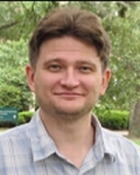 Prof. Sergey Shevkoplyas |
Prof. Sergey Shevkoplyas is a biomedical engineer with core expertise in blood microfluidics. His primary research interests are the development and clinical translation of high-throughput microfluidic devices and single-cell analysis tools in the field of blood storage and transfusion medicine. His laboratory is currently developing novel technologies for improving the safety and efficacy of blood transfusions, and making blood products available for life-saving transfusions in resource-limited settings. An additional significant thrust of his research program is the development of enabling technology for low-cost, point-of-care diagnostics in resource-limited settings. |
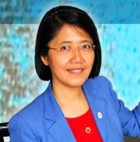 Prof. May Dongmei Wang |
Prof. May Dongmei Wang is associate professor, GCC distinguished cancer scholar and Director of Biocomputing and Bioinformatics Core in Emory-Georgia Tech Cancer Nanotechnology Center at the Wallace H. Coulter Department of Biomedical Engineering at Georgia Tech and Emory University. Dr. Wang’s primary research interest is biomedical and health informatics in systems medicine and healthcare, with the goal to speed up the discovery, development, and translation in modern biology, medicine, and health. She has played an active role in several working groups within National Cancer Institute (NCI/NIH) cancer Biomedical Informatics Grid (caBIG) , and FDA-led Microarray Quality Control Consortium (MAQC) on biomarker and nanomedicine for personalized medicine. As the corresponding or co-corresponding author, Prof. Wang has published in journals such as Annals of Biomedical Eng, BMC Bioinformatics, Trends in Biotechnology, Nature Protocols, Proceedings of National Academy of Sciences, Annual Review of Medicine, and The Pharmacogenomics Journal. |
